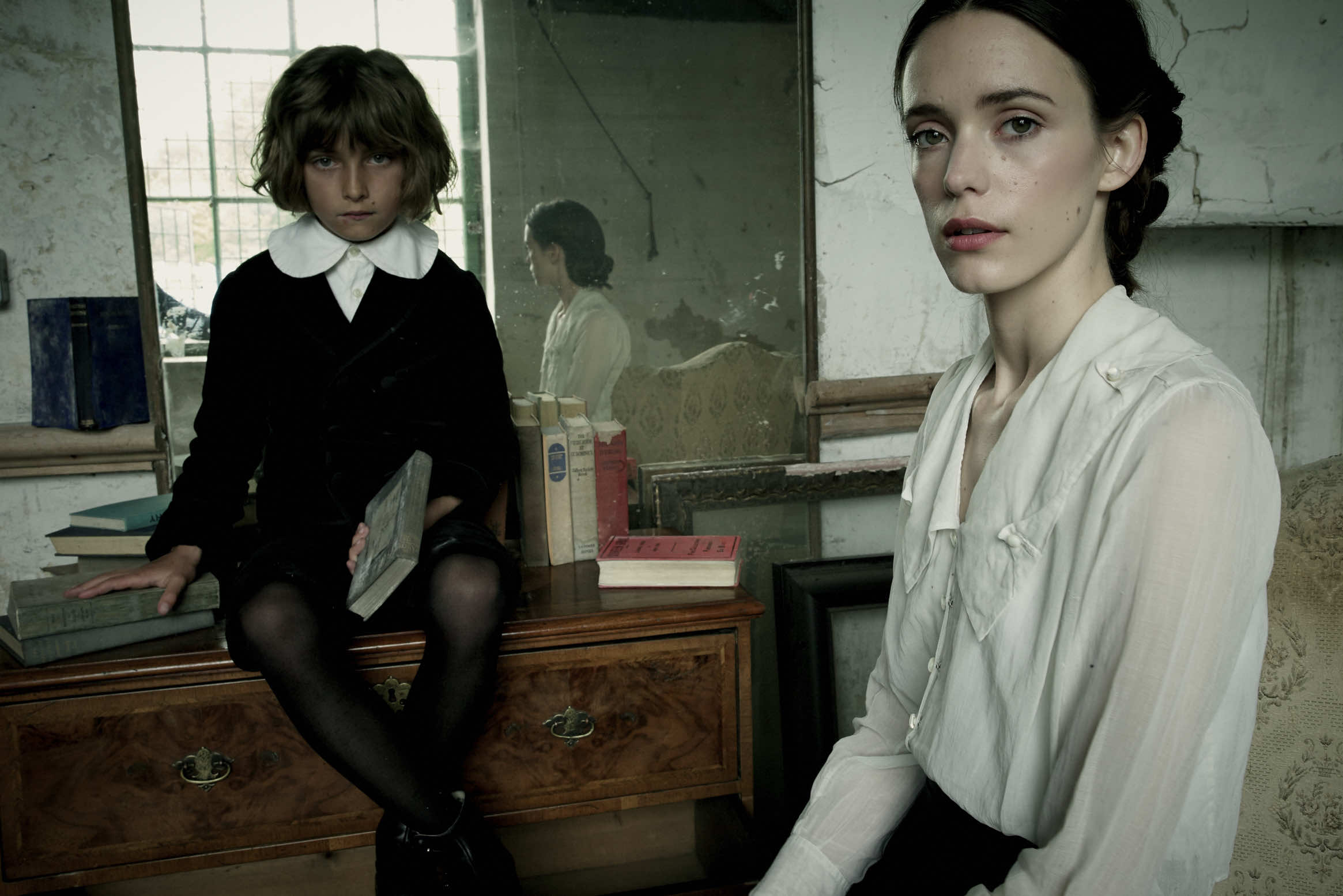 The directorial feature debut by American writer/actor Brady Corbet offers an arcane psychological portrait of a little boy who grows up to become a fascist leader. The storytelling of The Childhood of a Leader is spare and counts on the empathy and patience of the viewer, as Corbet keeps the inner world of this child obscured behind a physical performance by newcomer and British child actor Tom Sweet. The film focuses on behavior, especially punishment and a clear lack of love surrounding the boy, which is accentuated beyond words and exposition by an oppressive atmosphere of darkened interiors and a grim orchestral, sometimes cacophonous, score by English musician Scott Walker.
The directorial feature debut by American writer/actor Brady Corbet offers an arcane psychological portrait of a little boy who grows up to become a fascist leader. The storytelling of The Childhood of a Leader is spare and counts on the empathy and patience of the viewer, as Corbet keeps the inner world of this child obscured behind a physical performance by newcomer and British child actor Tom Sweet. The film focuses on behavior, especially punishment and a clear lack of love surrounding the boy, which is accentuated beyond words and exposition by an oppressive atmosphere of darkened interiors and a grim orchestral, sometimes cacophonous, score by English musician Scott Walker.
Corbet (who we interviewed in 2013: Actor Brady Corbet praises 35mm ahead of rare screening of ‘Au Hasard Balthazar’ at MIFF) co-wrote the script with his partner, actress/writer/director Mona Fastvold. The film shares its title with a short story by Jean-Paul Sartre. Though Sartre is not credited, Corbet has admitted that story was a springboard for the script. Sartre’s 1939 story depicts a boy’s experience from childhood into early adulthood, when he becomes a fascist psychopath. Like the short story, considered a parable about the rise of Hitler, The Childhood of a Leader is an expressive film informed by Freudian ideas. Liam Cunningham (more popularly recognized with a beard on “Game of Thrones”) plays the father, a man working for Woodrow Wilson with an important role in making the signing of the Treaty of Versailles happen. The mother is played by Bérénice Bejo who leans on a nanny (Stacy Martin) and a maid (Yolande Moreau) to help in the upbringing of her son, whom she is never seen hugging. In the background is a family friend and widower, Charles (Robert Pattinson), who notices the boy only from a cool distance.
 This is not a movie concerned with clear cause and effect, however. Instead, it presents this boy’s life in perspective of three increasingly unsettling “tantrums,” set up with title cards that include captions that reveal the film’s only moments of levity. Otherwise, The Childhood of a Leader uses heavy atmosphere to capture the passively suffocating personal world of this little boy, whose eyes are often obscured by a mop of long hair, and whose name is only revealed as an exclamation at the end of the final, rather horrifying outburst.
This is not a movie concerned with clear cause and effect, however. Instead, it presents this boy’s life in perspective of three increasingly unsettling “tantrums,” set up with title cards that include captions that reveal the film’s only moments of levity. Otherwise, The Childhood of a Leader uses heavy atmosphere to capture the passively suffocating personal world of this little boy, whose eyes are often obscured by a mop of long hair, and whose name is only revealed as an exclamation at the end of the final, rather horrifying outburst.
The dynamic camera work by Lol Crawley ranges from voyeuristic to literally dizzying. The mise-en-scène, from wintry landscapes to chilly, dark, opulent rooms alludes to a child lost in an adult’s world. Then there’s Walker’s score, which is so essential, the first words spoken in the film are by the composer. After the opening production logos, you hear Walker’s voice, from beyond a fourth wall, say, “OK! Let’s try this, please.”
Then, the music commences against a black screen that says “Overture” before a cut to newsreel footage from World War I — from falling bombs to muddy battlefields to a child shivering in the cold. As this stark opening title sequence unfolds, bass strings chug, violins sting and a minor key melody establishes the atmosphere of this grim film.  There’s an ear-splitting quality to the music with sporadic random bursts of emphasis from high-pitched horns sustaining a particularly sharp harmony as cymbals flatly clash during one random moment. It’s harrowing, controlled chaos that resonates through the film’s development. As the music unravels, the background to the film’s private events is tightly established in images. President Wilson travels by train, a reference to the upcoming signing of the Treaty of Versailles. Then we see dark train tracks in the night, before a slow zoom through a window to our lad in a costume of an angel, waiting for a cue to take the stage in a nativity play.
There’s an ear-splitting quality to the music with sporadic random bursts of emphasis from high-pitched horns sustaining a particularly sharp harmony as cymbals flatly clash during one random moment. It’s harrowing, controlled chaos that resonates through the film’s development. As the music unravels, the background to the film’s private events is tightly established in images. President Wilson travels by train, a reference to the upcoming signing of the Treaty of Versailles. Then we see dark train tracks in the night, before a slow zoom through a window to our lad in a costume of an angel, waiting for a cue to take the stage in a nativity play.
Corbet seems so against exposition he uses the music above dialogue to tell the child’s story. He never dials down Walker’s ominous score to allow for the clarity of voices, adding a sense of foreboding to the mundane. Sometimes it drowns out conversations. It’s by design. After all, talk is useless to explain the irreversible trauma to a boy caught up by the metaphysical effects of terrible parenting. It speaks to the disconnect between this child and the most important people in his life.
The Childhood of a Leader is a confident piece of filmmaking fiercely aware of how certain actions by parents can create a lasting impression on a child coming into awareness as a person. As a thing of emotion and action, it would not be half as strong as it is had it not been for the film’s essential score (Available for pre-order on vinyl here). Walker’s orchestral music brings moody heft to the ostensibly presented world of a boy raised by icy parents and no friends his age. The storytelling, visual showmanship and music all come together in an amusingly startling epilogue that adds another layer to this child’s past, leaving a lasting impression of a movie interested in having an effect instead of offering an excuse and placing a metaphorical cherry atop this unnerving film.
The Childhood of a Leader runs 115 minutes and is not rated (trigger warnings: violence and child on adult groping). It opened in our South Florida area this Friday, Aug. 12, at the Miami Beach Cinematheque. On Aug. 26, it begins a run at the Lake Worth Playhouse. IFC Films provided all images in this post and a DVD screener for the purpose of this review.










[…] Independent Ethos […]